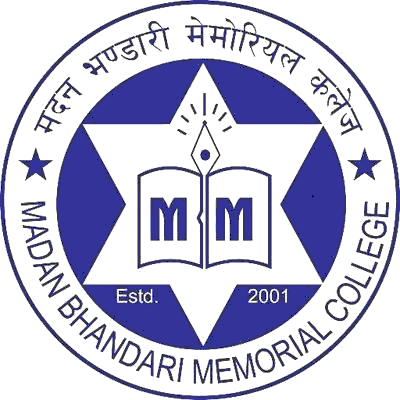Overview
Overviews of MA in Nepali at the Central Department of Nepali, Tribhuvan University, Kathmandu, Nepal
Course Overview:
The MA in Nepali program at the Central Department of Nepali, Tribhuvan University, is a two-year program structured in a semester-wise format. The course comprises a total of 64 credits, with each semester consisting of 16 credits. The evaluation of students is divided into two parts: internal evaluation, accounting for 40% of the marks, and external evaluation (Board Examination), making up the remaining 60%.
Eligibility:
To be eligible for admission to the MA in Nepali program, students must hold a bachelor's degree in Nepali from any university recognized by Tribhuvan University.
Admission Criteria:
Admission to the program is strictly based on merit. Applicants must participate in the Entrance Examination as required by the Dean's Office, Faculty of Humanities and Social Sciences.
Course Outlines:
The program is divided into four semesters, each comprising a set of courses. Here is an outline of the courses offered in each semester:
First Semester:
- Course 551: Historical and Sociolinguistics (3 credits)
- Course 552: Sanskrit Kavyashastra (3 credits)
- Course 553: Western Literary Criticism and Nepali Literary Criticism (3 credits)
- Course 554: Modern Nepali Essay and Folk Literature (4 credits)
- Course 555: Modern Nepali Footpath Poetry (3 credits) Total: 16 credits
Second Semester:
- Course 556: General Linguistics (3 credits)
- Course 557: Western Literary Debates and Criticism Methods (3 credits)
- Course 558: Early Modern Nepali Literature (3 credits)
- Course 559: Modern Nepali Drama and Film Theory (4 credits)
- Course 560: Modern Nepali Epics (3 credits) Total: 16 credits
Third Semester:
- Course 561: Modern Nepali Short Stories (3 credits)
- Course 562: Modern Nepali Epics (3 credits)
- Course 563: Literary Theory and Writing Nepali Literary History (3 credits)
- Course 564: Linguistic Study Traditions (4 credits)
- Course 565: Playwright Balkrishna Sama and his Plays
- Course 566: Poet Laxmi Prasad Devkota and his Poems
- Course 567: Playwright Vijay Malla and his Plays
- Course 568: Poet Mohan Koirala and his Poems
- Course 569: Research and Creative Methodology (4 credits) Total: 16 credits
Fourth Semester:
- Course 570: Modern Nepali Novels (3 credits)
- Course 571: Eastern Philosophy and Editorial Work (4 credits)
- Course 572: Major Approaches in Linguistic Studies
- Course 573: Storyteller Vishweshwar Prasad Koirela and his Stories
- Course 574: Storyteller Bhawani Bhikshu and his Stories
- Course 575: Storyteller Parijat and her Stories
- Course 576: Novelist Dhruv Chandra Gautam and his Novels
- Course 577: Research Paper Writing (6 credits)
- Course 578: Creative Paper Writing Total: 16 credits
Scope and Career Prospects:
Graduates of the MA in Nepali program have diverse career opportunities, including:
- Technical Writers
- Lecturers
- Writers
- Copywriters
Why Choose this Course:
The MA in Nepali program provides students with a comprehensive understanding of Nepali language, literature, and linguistics. It enables students to gain in-depth knowledge, research skills, and critical thinking abilities, preparing them for careers in academia, research, writing, and cultural preservation.
Fees Structure and Contact Information:
For information about the fees structure, prospective students are advised to contact the administration office of the Central Department of Nepali, Tribhuvan University, located in Kirtipur, Kathmandu, Nepal.
Scholarship Opportunities:
Scholarship opportunities may be available for deserving students pursuing the MA in Nepali program. Prospective students can inquire about scholarship options at the administration office for further details.
The MA in Nepali program at the Central Department of Nepali, Tribhuvan University, offers a comprehensive curriculum, expert faculty, and a conducive learning environment to students passionate about Nepali language, literature, and linguistics. Graduates of this program are well-equipped to contribute to the field and make meaningful contributions to Nepali studies.
Contact Central Department of Nepali Tribhuvan University's administrative office for detailed information on the MA in Nepali course, including fees, scholarships, facilities, counseling, eligibility criteria, etc.



















